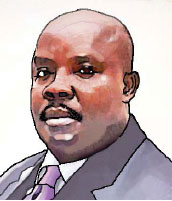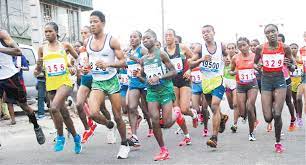By Emeka Alex Duru
(08054103327)
By this time two years ago, I added voice against what appeared programmed attacks on Nigerians living in South Africa. My observation then was that Nigerians living in the country, had become objects of attack and in some cases, extra-judicial killing. And because not much was known to have been done by the authorities in both countries over the barbaric trend, the perpetrators had gone unchallenged.
Statistics had then indicated that within 2015 and 2017, 116 Nigerians had been killed in South Africa through extrajudicial means. Curiously, seven in 10 of the killings were carried out by the Police. Criminal and misguided members of the country had also taken part in the acts, often resorting to arson and looting properties of Nigerians in their midst.
The authorities in South Africa, had of course thrown up offences alleged to have been committed by Nigerians murdered in controversial instances in the country. On the surface, some had appeared weighty but certainly not enough to have warranted the extrajudicial treatment meted to them. But most of the attacks bordered on greed and pettiness of lazy and fringe elements of the South African society who could not stand the reality of hard working Nigerians making it in their country. The latest onslaught against Nigerians, falls into this explanation.
The explanation by the President of the Nigeria Union in South Africa (NUSA), Adetola Olubajo, captures it all. According to him, the attacks began on Sunday morning in Jeppestown area of Johannesburg when a building was set ablaze by an angry mob.
“The mob also looted several shops that were around the vicinity suspected to be owned by foreign nationals. Late in the evening of Sunday, September 1, a group of violent locals suspected to be Zulu hostel dwellers besieged Jules Street in Malvern, Johannesburg, looted and burned shops/businesses’’, Olubajo said
He added that information gathered by members of NUSA in Malvern area indicated that over 50 shops were destroyed, looted and burnt over the night.
“Also, some businesses owned by foreign nationals were looted in Germiston on Sunday evening. A Nigerian-owned Internet café and computer accessories business was among the looted shops in Germiston.
“Nigerian-owned businesses were seriously affected. A car sales business owned by a Nigerian was among the businesses set ablaze over the night. Although the police said that many people had been arrested over the unnecessary attacks, the looting and burning of foreign-owned businesses continued till Monday morning,’’ he said. Olubajo said he promptly called the Police when he got wind of the mayhem but before order could be restored, much harm had been done. By Tuesday, there was no rebuttal by South Africa on the account rendered by Olubajo.
The temptation is therefore strong to assume that the country either sanctioned the attacks or was lethargic in reining in the loose elements among its citizens. The statement credited to the country’s Deputy Minister of Police, in which he was quoted to have made reckless remarks, indicating endorsement of the attacks, does not help matters either. But whichever way it is seen, this is cruelty taken too far. And to think that such regime of wickedness could be unleashed on Nigerians by the very South Africa that their country literally opened its vault for and sacrificed its men to ensure its liberation from white minority rule, rankles immensely.
When it mattered most for South Africa, Nigeria had lent a helping hand. In fact, at the height of the decolonization struggle in the Southern Africa and particularly, the fight against the obnoxious Apartheid system in South Africa, Nigeria threw its men and women on the firing line to give voice to the oppressed black majority in the country.
Even when leading Western countries at the time, especially, America and Britain saw nothing wrong in the atrocious white minority regime in the country, Nigeria rallied other countries in Africa and beyond to ensure justice in South Africa.
In standing up for the country, Nigeria took some dire economic actions against countries seen to be backing the rogue regime in Pretoria. States seen to be sitting on the fence, were not spared. It was in the process that the then Barclays Bank was nationalized and renamed Union Bank, to hit Britain for supporting apartheid. Standard Bank became First Bank, while Shell British Petroleum (BP), was nationalized and renamed African Petroleum (AP). Nigeria also hit at America by rallying other African countries to support the Russian-backed Popular Movement for the Liberation of Angola (MPLA) against the US-backed National Union for the Total Independence of Angola (UNITA), in the march for Angolan independence. MPLA eventually led Angola to independence in 1975, in an exercise that was seen as a major diplomatic victory by Nigeria against America.
Elsewhere, student bodies were encouraged in Nigerian Universities and other institutions of higher learning to add voice to the agitation against apartheid. Musicians were not left out. In fact, the late Sunny Okosuns, earned fame and followership among Nigerians for his trenchant songs against the obnoxious regime. These were in addition to various regime of aid and diplomatic support from the country to the freedom fighters in South Africa.
These measures were to haunt Nigeria, years later. It was in fact, insinuated that it was in a bid to hit back at Nigeria for its stance on the South African debacle that Permanent Member countries of the United Nations, ensured that former President Olusegun Obasanjo, who was Nigeria’s Head of State at the decolonization era, was humiliated when he vied for the position of Secretary-General, of the World body.
It was also suspected that the controversial decision of the International Court of Justice (ICJ) on the Bakassi Peninsular between Nigeria and Cameroun, where the latter got favourable judgement, may not have been entirely divorced from the spill-over of Nigeria’s role in South Africa.
But this is where Nigeria is, currently, in its relations with South Africa. Aside the routine maltreatment of Nigerians in the country by way of humiliating deportation, unprovoked attacks at their residences and business premises and extra-judicial murder, nothing much can be headlined in the attitude of South Africa to Nigeria.
But who do we really blame in the turn of events? Whether we take it or leave it, no country can treat a citizen better than his or her country. The reality of international politics, is that the treatment citizens receive from a host nation, is a reflection of the treatment they get in their home country.
When a country places high premium on its relations with its nationals, no other state would treat them in lesser degree. That is why it is rare for any State to manhandle citizens of America, Israel, Germany, Britain or other countries that truly bother about what happens to their nationals. Such unusual instances if they do happen, also attract commensurate consequences.
But for Nigerians abroad, that is not the case. Even the leaders at home, take joy in dismissing the citizens as corrupt and criminally minded, even when there are no evidences to substantiate the blanket ascription.
The country does not show visible concern on the treatment meted at its citizens abroad because it does not treat them better at home. In the instant case, not much may come from the country in terms of standing by its traumatized citizens in South Africa, if occasions in the past would serve as examples. The impulsive response of ‘Enough is enough’, by the External Affairs Minister, Geoffrey Onyeama, may, after all, be the longest distance Nigeria may travel on this issue. And life, as they say, goes on.















